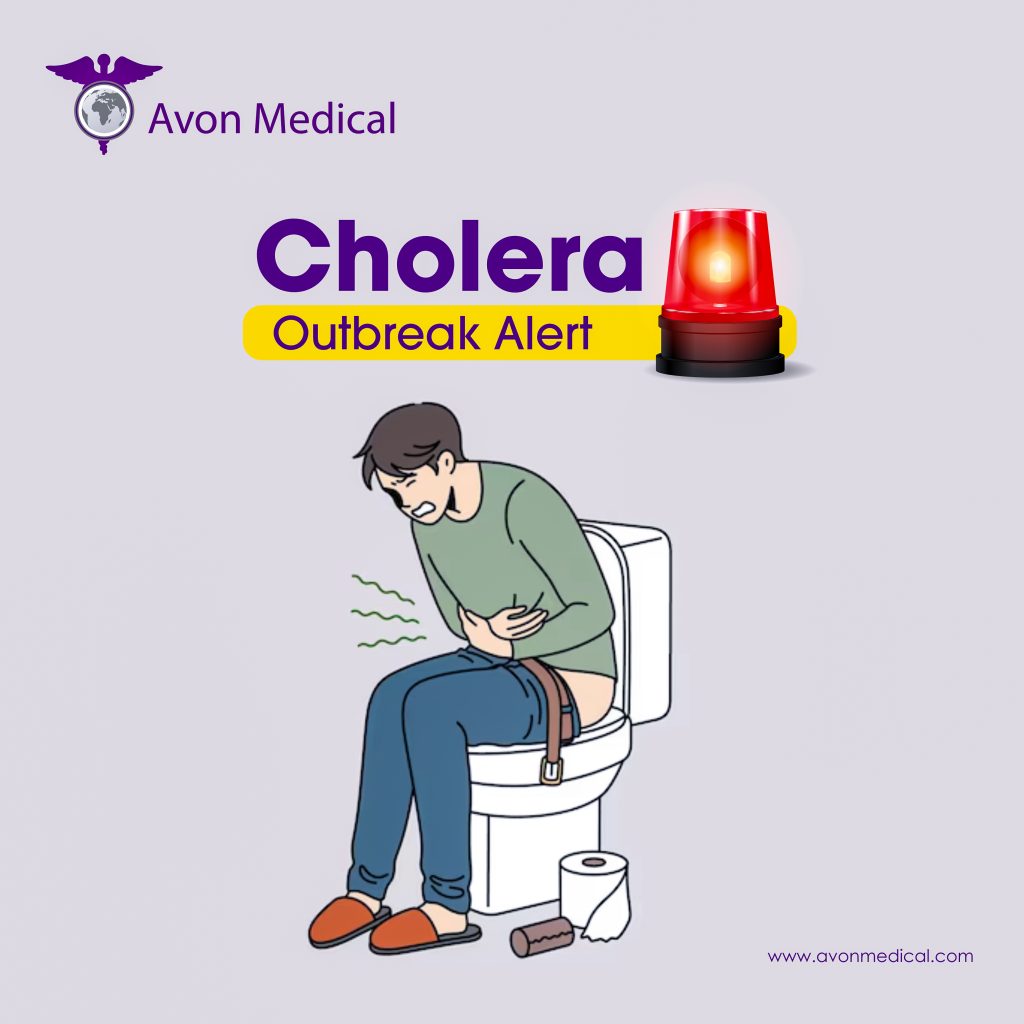Recently, it has been reported that Lagos State, Nigeria, is experiencing a cholera outbreak, which has resulted in five fatalities and over 60 hospitalizations.
Cholera, a highly contagious bacterial infection, causes severe diarrhea and dehydration, which can be life-threatening if not treated promptly. This infection typically spreads through the intake of contaminated water or food.
Did you know that most people exposed to Cholera don’t become ill and don’t know they’ve been infected? But because they shed cholera bacteria in their stool for 7-14 days, they can still infect others through contaminated water. Most cases of cholera have mild or moderate diarrhea which is often hard to tell apart from diarrhea caused by other illnesses.
The symptoms of Cholera can range from mild to severe and typically appear within a few hours to five days after ingesting contaminated food or water. The primary symptoms include:
- Watery Diarrhea: The most characteristic symptom of cholera is a sudden onset of profuse, watery diarrhea, often described as “rice water stools” due to its pale, milky appearance. This can lead to rapid dehydration.
- Vomiting: this contributes to the rapid loss of fluids and electrolytes.
- Dehydration: Severe dehydration can occur quickly and is characterized by symptoms such as:
- Dry mouth and throat
- Extreme thirst
- Decreased urine output or dark-coloured urine.
- Sunken eyes
- Dry and wrinkled skin
- Low blood pressure
- Rapid heart rate
- Muscle cramps
In severe cases, the rapid loss of fluids and electrolytes can lead to hypovolemic shock (This occurs when the heart can’t supply the body with enough blood (and Oxygen) due to a loss of more than 20% of the body’s blood volume), characterized by:
-Cold, clammy skin
-Weak or absent pulse
-Confusion or unconsciousness.
To avoid getting infected by the Vibrio cholerae (cholera bacteria), here are some important measures you can take to prevent cholera:
- Ensure Safe Drinking Water: Drink only bottled, boiled, or chemically treated water. Avoid using ice unless it is made from safe water.
- Practice Good Hygiene: Wash your hands thoroughly with soap and clean water before eating, after using the toilet, and when handling food.
- Safe Food Practices: Eat food that is thoroughly cooked and still hot. Avoid raw or undercooked seafood and street food. Peel fruits and vegetables before eating.
- Proper Sanitation: Ensure that waste is properly disposed of and avoid areas with poor sanitation.
- Avoid Sushi, as well as raw or improperly cooked fish and seafood of any kind.
- Stick to fruits and vegetables that you can peel yourself, such as bananas, oranges, and avocados. Stay away from salads and fruits that can’t be peeled, such as grapes and berries.
If you or your loved ones develop severe diarrhea after visiting an area with active cholera or think you might have been exposed to it, see your doctor immediately.
For more information and enquiries, contact us on the following numbers: (+234)-908-799-4655 or (+234)-908-799-4656. You can also send us a DM on our Instagram, Facebook, LinkedIn.
Stay informed and stay safe. By taking these preventive measures, you can protect yourself and help prevent the spread of cholera in our community.

